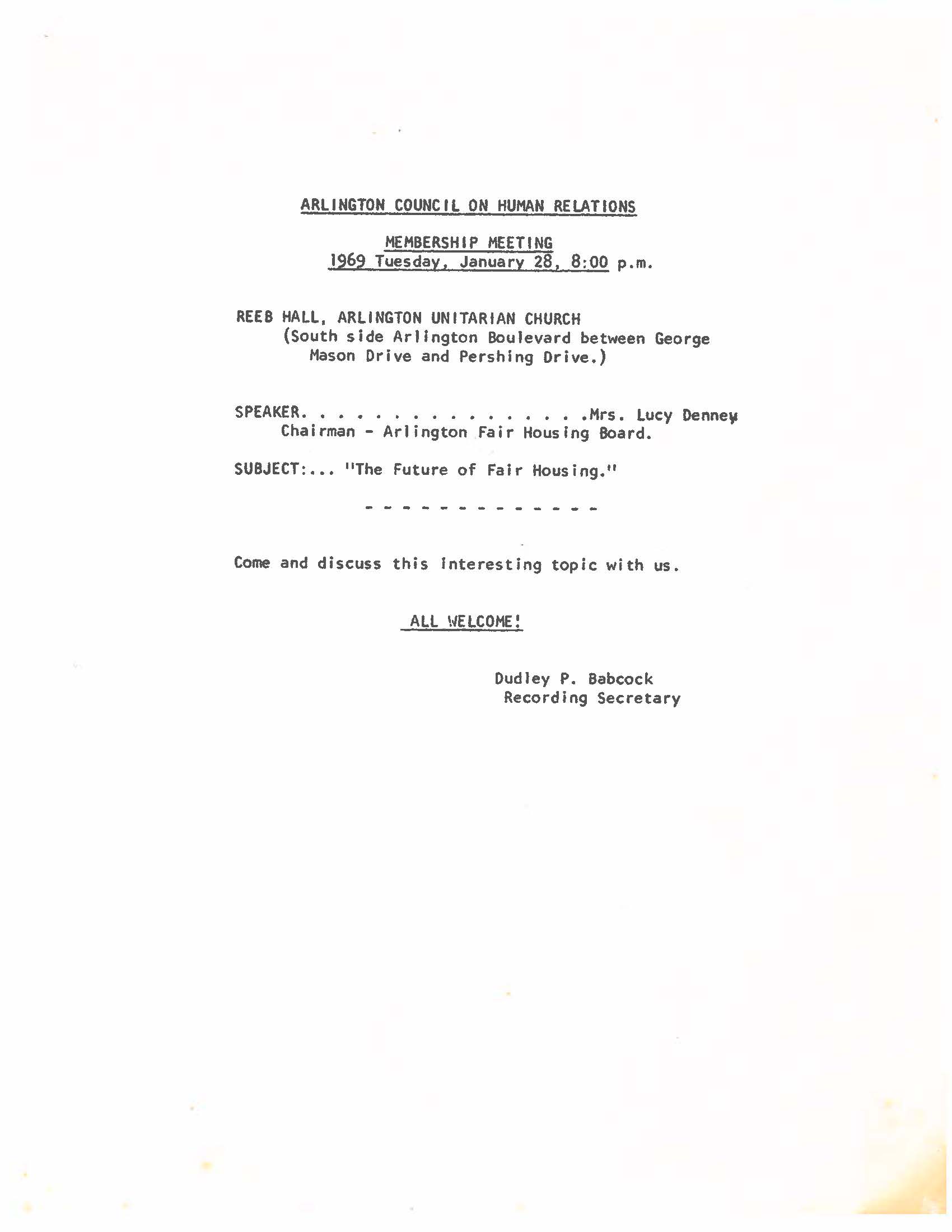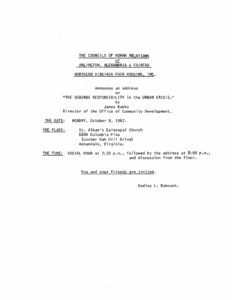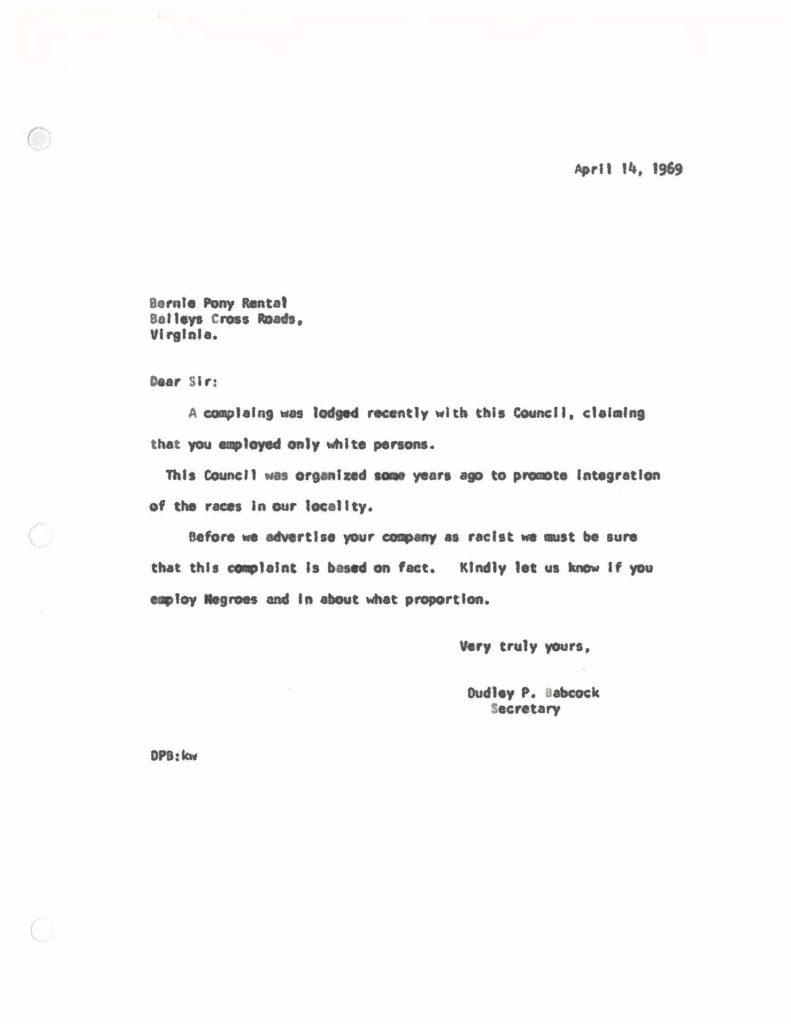
Join us for a new series of stories from the Center for Local History highlighting members of our community who made a difference in ways that helped shape our history and created positive change.
Their voices were not always loud, but what they said or did had a significant impact on our community.
Arlington Council on Human Relations
On December 1, 1958, members of the public were invited to a meeting held at the Rock Springs Congregational Church. The meeting was organized by Pastor Sidney Lovett, as well as Hubert Beckwith and Paul Rilling, President and Executive Director respectively of the Virginia Council on Human Relations.
It was on that evening that the Arlington Council on Human Relations was formed.
The purpose of the Council was to improve the economic, civic, and racial conditions in Arlington County. Affiliated with the Virginia Council on Human Relations and coordinating with other local, regional, and national agencies and organizations, the council sought to promote better understanding and communication while trying to lessen tensions between the different groups living and working within Arlington County’s borders.
The County at this time was strictly segregated. Not only were there “white” schools and “Black” schools, but playgrounds were segregated, theaters maintained separate seats for Blacks, and they couldn't stay at any motels or hotels in the County. Even the Arlington Hospital was segregated as there was only one maternity ward and no Black mother could have her baby there except in cases of emergency. Low-income housing was also an ongoing problem.
The Council formed committees to address these various issues. Months were spent writing letters to theatre owners, and picket lines were formed at theatres. Many meetings were held with various organizations and businesses. A joint meeting with Arlington Hospital was arranged.
Change was slow, but the Council members persisted and while the struggles were sometimes bitter, progress was made. Arlington Public Schools began the process of desegregation, public playgrounds and theatres were integrated and some motels began to accept Black people. Black women were accepted in the maternity wing of Arlington Hospital, and lunch counters throughout the County were integrated. And all of this took place before the Civil Rights Act of 1964 was passed.
Do you have a question about this story, or a personal experience to share?
Use this form to send a message to the Charlie Clark Center for Local History.
Center For Local History - Blog Post Message Form
Do you have a question about this story, or a personal experience to share? Use this form to send a message to the Center for Local History.
"*" indicates required fields


